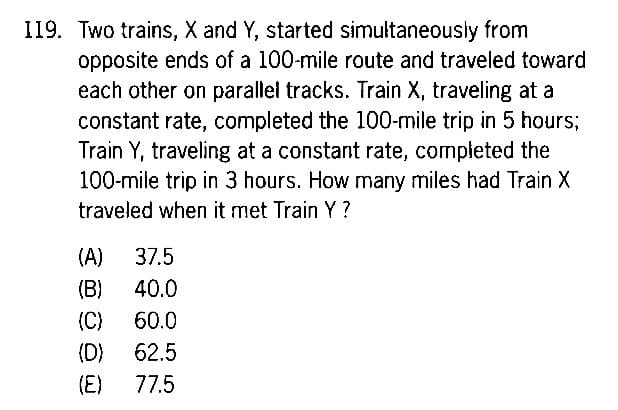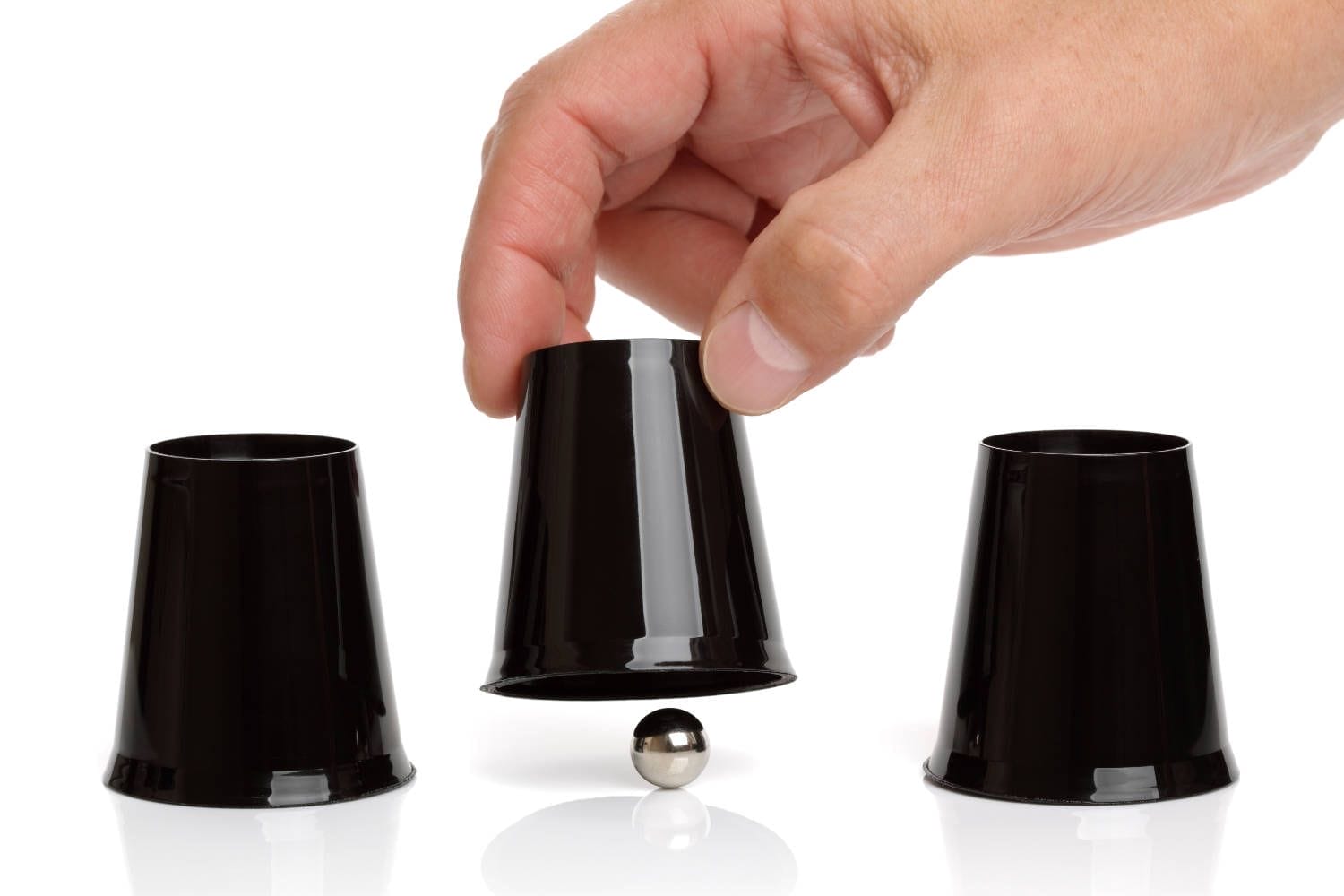Knowing how to guess well on GMAT and GRE Quant questions is a tremendously important factor on the test. Most people just don’t do it – they guess of course, but not well! But even if it is something that you are not doing it is a skill that can be acquired and practiced and this post will describe some of the ways to cultivate the ability to guess well on GMAT and GRE Quant questions.
First, let me describe the importance of strategic guessing. The algorithm on the GMAT and GRE obviously cannot differentiate between someone who really knows how to solve a problem and someone who is able to guess correctly. If on 10 roughly 700-level GMAT questions you were able to guess correctly on half, the algorithm would assume that 700 level questions are right at the limit of your ability even if you are actually only able to reliably answer 650 level questions and below. On my very first GMAT I was expecting a Quant score of about 46 but ended up with a score of 49 and I am certain that a big part of the reason I was able to score so high (at a time when I didn’t know that much about the test and how to answer many of the questions) is that I am very, very good at strategic guessing and I remember making some really good educated guesses on the test.
To detail all the ways in which you can make good educated guesses on GMAT and GRE Quant questions would require a lot of space so I will save that for some future posts, but I will give an example here just to show how effective it can be and then will spend the rest of the time discussing how one can practice strategic guessing, since it’s my opinion that most people never try to actively practice the technique (to their own detriment).
To begin with, it helps to understand that guessing on questions is obviously not about getting lucky. GMAT and GRE questions are designed so that strategic guessing is often made more possible – often several of the answers wouldn’t make logical sense so that one can often eliminate answers and make really good guesses. Why would the test maker allow for that? Because the GMAT and GRE are not tests of pure Math ability; they are reasoning tests, and by allowing test takers to get the right answer using clever reasoning instead of complicated Math the test writers reward people for the kind of reasoning that the test seeks to measure. And it almost seems as though the harder the question, the more there was an effort put in by the test writers to allow for strategic guessing. Take the below official GMAT question for example:

This is a pretty hard question, especially if you don’t know how to do it. But you can get the answer with some good old-fashioned reasoning and it might even be faster that way anyway. Just doing some quick calculating, train X is traveling 20mph and train Y is traveling 33 1/3 miles per hour. Therefore, the trains will meet closer to the side that train X is leaving from. Since the distance is 100 miles, train X will travel less than 50 miles and train Y will travel more than 50 miles by the time they meet. That already eliminates choices C, D, and E. Why would the GMAT writers allow for such an easy elimination? Well the fact that they put three answers that are all greater than 50 is deliberate – they are facilitating logical guessing, even encouraging it!
We can even go one step further. Given their different speeds, in 2 hours train Y will go 66 2/3 miles and train X will go 40 miles. So that means that by the time train X travels 40 miles, the trains will already have crossed. Therefore train X will travel less than 40 miles when they meet and the answer must be A. Again the insertion of 40 as an answer is deliberate to allow for the above kind of reasoning. And this question is but one example among many that demonstrate how strategic guessing is made more possible by the GMAT and GRE writers themselves.
So, how does one practice strategic guessing? Well the fact is that most people don’t even know that logical guessing is an important tool on the GMAT and GRE, and even when they find that out (as my students obviously do) they don’t practice it. The first step is to realize that guessing is just a fact of the GMAT and GRE. Unless you are scoring near perfect on the Quant sections, you are going to have to guess. So the question is, will you waste time on questions that you will likely be unable to answer and then make flustered panicked guesses or will you realize on some questions that it is not worth your while to solve the question and then proceed directly to logical, strategic guessing? Often you will find that when you choose to make a smart, educated guess you end up not guessing at all because guessing turns into eliminating all but one answer!
Once you accept that you will have to guess you can set about practicing the skill. Again it is beyond the scope of this post to discuss all the ways in which you can guess strategically (I will expand upon that in later posts), but you need to actually structure it into your studying. Most people, when they practice GMAT or GRE questions, say for example in the Official Guide, just try to answer every question without thinking about guessing. Of course trying to solve all of the questions is a good idea, but to mimic the test day experience, it is better to consider on every single question you do whether you could answer the question correctly and in a reasonable amount of time. This is part of the decision process that should happen on every question you see. If you have a high level of confidence and think that the question won’t take that long, you obviously go ahead and solve it. But if your confidence is not high and/or you think that it may take a very long time, then it would be foolish to dive in and try (at least on test day). Now when you are doing practice questions on your own, you’ll ultimately want to solve it, but why not first practice guessing on the questions that you think you might not be able to answer. After you guess you can try to solve the problem and then see if your guess was correct, but since letting go of questions and taking the time to make smart, educated guesses is part of the skill set that you need on the GMAT and GRE, you might as well practice it as you prepare for the test. And frankly, you are not just practicing the art of guessing, you are forcing yourself to really think about the question and what to do with it before jumping in, an ability that is absolutely crucial to success on both tests.
What you will likely find, especially if you learn how to guess effectively and how to identify questions that are “low-percentage” questions for you, is that strategic guessing is often more likely to lead you to the right answer than sweating through a really hard problem and then making a flustered guess after you’ve realized that you wasted too much time. So as you work through the Official Guide or other official GMAT or GRE questions, take the time to assess whether, if you were to see that particular question on the test, it would be wise to really attempt to answer the question or whether it would be better to make an educated guess and move on. Becoming a better and more strategic guesser is an often overlooked but critically important factor in achieving greatness on the GMAT and GRE, so it makes sense to practice and cultivate that skill!

